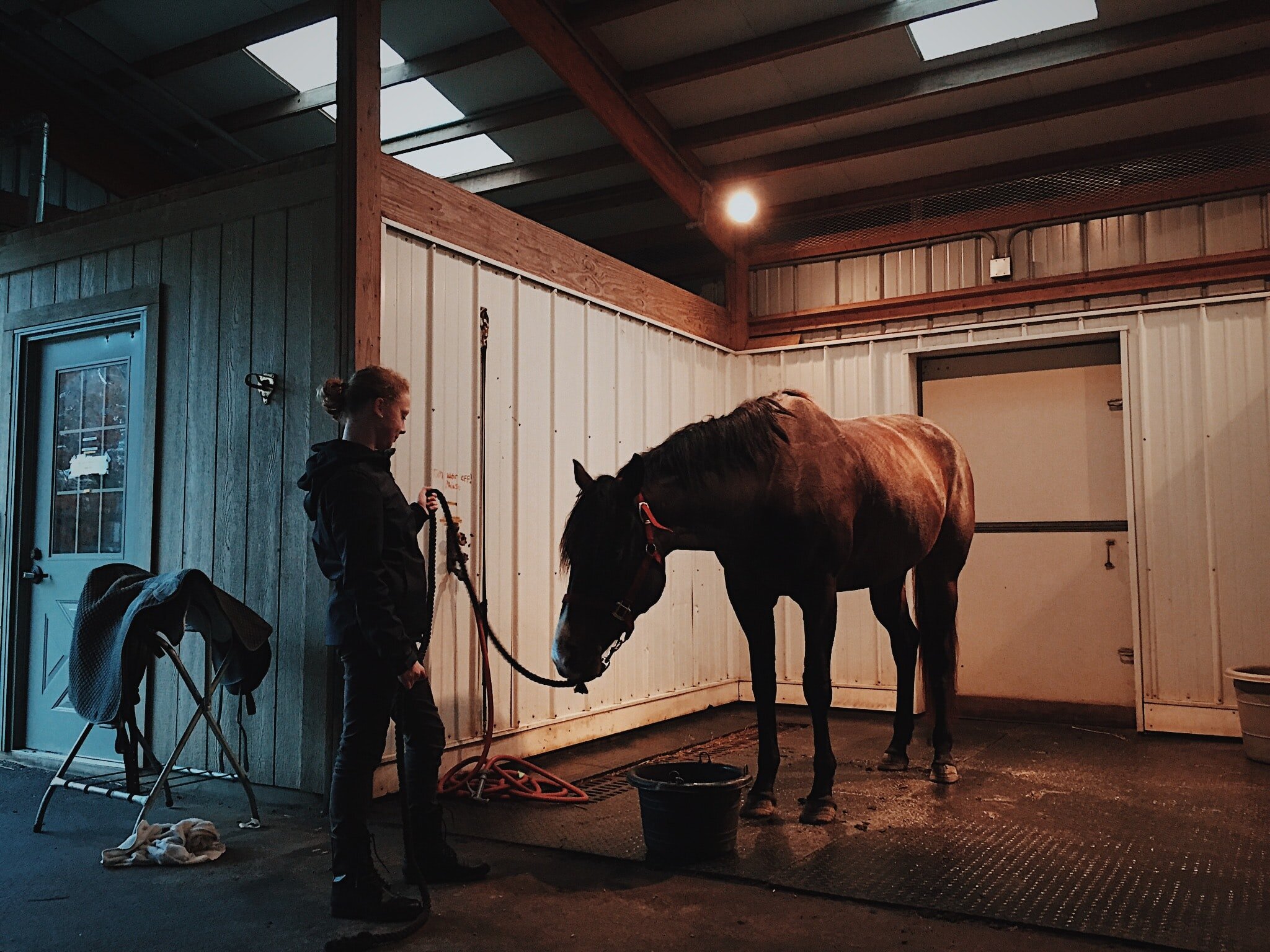By: Emily Allender
As of October 2020, the United States is into their seventh month battling the COVID-19 pandemic.[i] People all over the nation know the Kentucky Derby as one of the most historic horse races in our history. This May was to be the 145th running of the Derby at Churchill Downs in Louisville.[ii] Churchill Downs announced that due to the COVID-19 pandemic, the race was rescheduled to September 5, 2020,[iii] making it only the second time since 1945 that a Derby race was rescheduled.[iv] It was then later announced that there would be no fans at the September Derby Day.[v] Knowing this is such a major event for the state of Kentucky, one can only consider what will be the economic impact of this decision, both for Kentucky revenue and more specifically, the equine industry.
It should be no surprise that the Kentucky Derby is a massive economic boost for Kentucky.[vi] In January of this year, Louisville Tourism estimated that Derby Day alone brought in $394 million with 75% of ticketholders coming from out of town.[vii] Combining the two weeks of festivities leading up to the Debry, the total generated nearly $500 million.[viii] Prior to the announcement that there would be no fans at the Debry, Churchill Downs stated that they had lost nearly $149 million in the second quarter due to postponed or canceled races alone.[ix] Then the estimate for loss in ticket sales for Derby Day was $214 million.[x] Churchill Downs and other racetracks in Kentucky have certainly faced difficulty this year but are confident that when it is safe for fans to return, they will come.[xi]
However, the racetracks are not the only ones facing challenges amid the COVID-19 pandemic. Horse stables and rescues are struggling to find people to foster and volunteer their time and care to help these horses.[xii] With more people concerned about job security and personal funds, they are less likely to spend that money on fostering or maintenance care, which has been a major hit to the equine industry.[xiii] Additionally, there are fewer fundraising opportunities that many equine businesses and organizations depend on to cover their expenses.[xiv] With the limits on social gatherings, many fundraisers have been cancelled and the industry has been forced to adapt.[xv]
However, from an alternate point of view, Jennifer Woodruff, a horse show judge stated that this offers an opportunity for the equine industry to revamp and create new methods for engagement.[xvi] For example, she said that the equine community is likely to see more virtual horse shows and virtual teaching lessons in the future.[xvii] Virtual shows have already been seen in some smaller, nonaffiliated local horse events around the country .[xviii] While there are major concerns that these types of events will take away revenue from the larger organizations in the industry, perhaps all will simply have to adapt to the chance of a different future.[xix]
It is apparent to all in the equine industry that this has been a year of unexpected changes. Large racetracks like Churchill Downs and smaller stables and rescues alike will have had to find new ways to generate revenue and maintain business during this time. On the positive side, it appears that the Kentucky Equine community will recover from the effects of the COVID-19 pandemic but may carry these adaptations into the future, creating a new era for the entire industry.
[i][i] Ted Anthony, Virus America, Six Months in: Disarray, Dismay, Disconnect, Associated Press (Sep. 13, 2020), https://apnews.com/article/virus-outbreak-archive-racial-injustice-race-and-ethnicity-706587be1d93d2672087a0ad99459462 [https://perma.cc/AUZ3-LPW5].
[ii] Dominique Yates, Kentucky Derby 2020: How COVID-19 Impacts Traditional Louisville Events, Louisville Courier Journal (Sep. 5, 2020, 12:26 PM), https://www.courier-journal.com/story/sports/horses/kentucky-derby/2020/09/03/kentucky-derby-2020-covid-19-impacts-traditional-louisville-events/3450975001/ [https://perma.cc/W7BB-NNUU].
[iii] Id.
[iv] Id.
[v] Id.
[vi] Grace Schneider & Ben Tobin, COVID-19's Economic Impact on the Kentucky Derby is Making 2020 a Rough Ride for Vendors, Louisville Courier Journal (Aug. 31, 2020, 10:43 AM), https://www.courier-journal.com/story/news/2020/08/28/kentucky-derby-2020-will-make-history-ways-businesses-felt-pain/3436175001/ [https://perma.cc/RBE5-QQLB].
[vii] Id.
[viii] Id.
[ix] Id.
[x] Id.
[xi] Yates, supra note ii.
[xii] Pat Raia, COVID-19 Economics Challenge the Horse Industry, The Horse (Apr. 2, 2020), https://thehorse.com/186680/covid-19-economics-challenge-the-horse-industry/ [https://perma.cc/ZG4X-GKJY].
[xiii] Id.
[xiv] Id.
[xv] Id.
[xvi] Id.
[xvii] Raia, supra note xii.
[xviii] Id.
[xix] Id.


